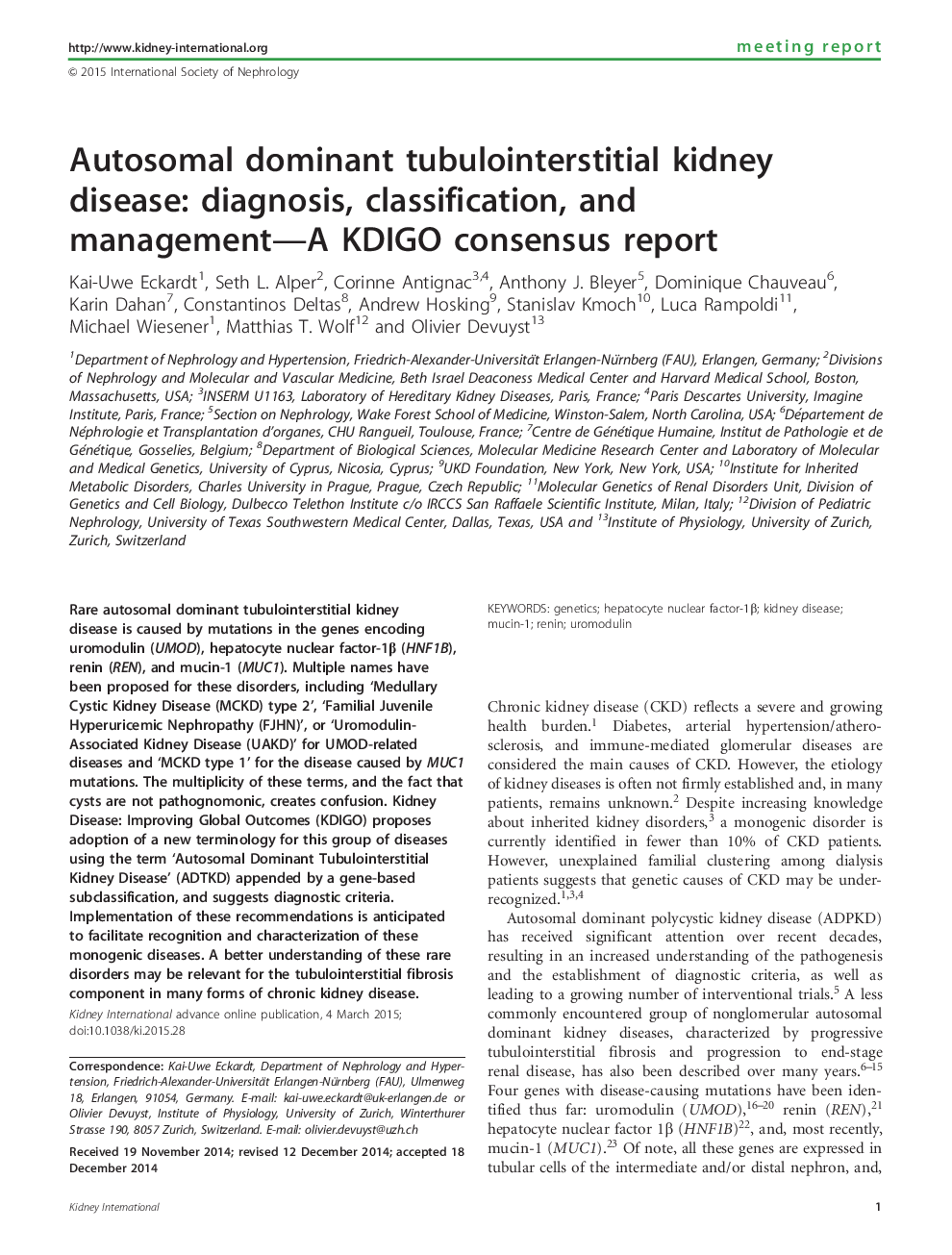| کد مقاله | کد نشریه | سال انتشار | مقاله انگلیسی | نسخه تمام متن |
|---|---|---|---|---|
| 6163382 | 1249431 | 2015 | 8 صفحه PDF | دانلود رایگان |
عنوان انگلیسی مقاله ISI
Autosomal dominant tubulointerstitial kidney disease: diagnosis, classification, and management-A KDIGO consensus report
دانلود مقاله + سفارش ترجمه
دانلود مقاله ISI انگلیسی
رایگان برای ایرانیان
کلمات کلیدی
موضوعات مرتبط
علوم پزشکی و سلامت
پزشکی و دندانپزشکی
بیماریهای کلیوی
پیش نمایش صفحه اول مقاله

چکیده انگلیسی
Rare autosomal dominant tubulointerstitial kidney disease is caused by mutations in the genes encoding uromodulin (UMOD), hepatocyte nuclear factor-1β (HNF1B), renin (REN), and mucin-1 (MUC1). Multiple names have been proposed for these disorders, including 'Medullary Cystic Kidney Disease (MCKD) type 2', 'Familial Juvenile Hyperuricemic Nephropathy (FJHN)', or 'Uromodulin-Associated Kidney Disease (UAKD)' for UMOD-related diseases and 'MCKD type 1' for the disease caused by MUC1 mutations. The multiplicity of these terms, and the fact that cysts are not pathognomonic, creates confusion. Kidney Disease: Improving Global Outcomes (KDIGO) proposes adoption of a new terminology for this group of diseases using the term 'Autosomal Dominant Tubulointerstitial Kidney Disease' (ADTKD) appended by a gene-based subclassification, and suggests diagnostic criteria. Implementation of these recommendations is anticipated to facilitate recognition and characterization of these monogenic diseases. A better understanding of these rare disorders may be relevant for the tubulointerstitial fibrosis component in many forms of chronic kidney disease.
ناشر
Database: Elsevier - ScienceDirect (ساینس دایرکت)
Journal: Kidney International - Volume 88, Issue 4, October 2015, Pages 676-683
Journal: Kidney International - Volume 88, Issue 4, October 2015, Pages 676-683
نویسندگان
Kai-Uwe Eckardt, Seth L. Alper, Corinne Antignac, Anthony J. Bleyer, Dominique Chauveau, Karin Dahan, Constantinos Deltas, Andrew Hosking, Stanislav Kmoch, Luca Rampoldi, Michael Wiesener, Matthias T. Wolf, Olivier Devuyst,